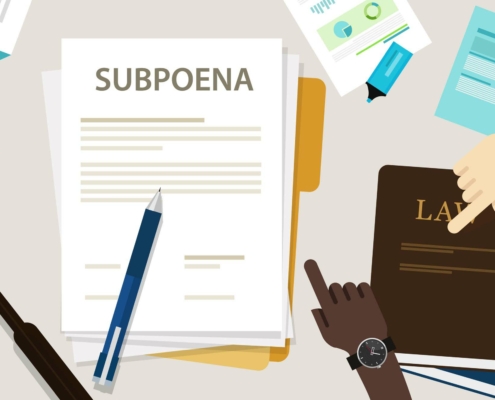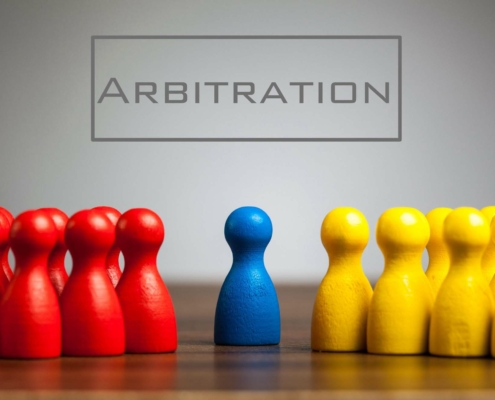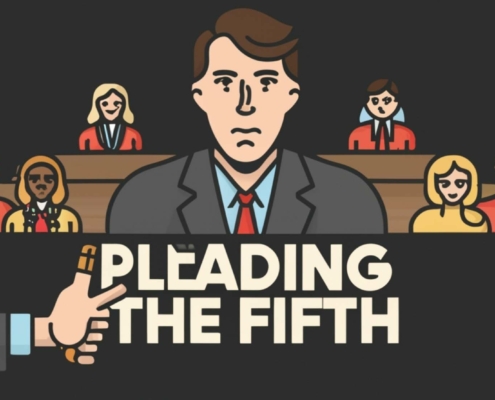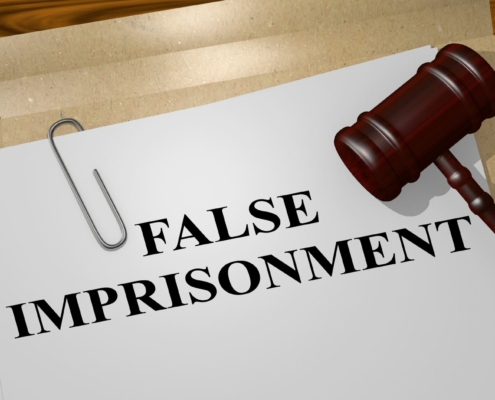Trustee and Beneficiary Conflict of Interest
A trustee has a conflict of interest when their interest conflicts with their responsibilities to the trust beneficiaries. A trustee may not put personal interest above the interest of the beneficiaries.
Author: Brad Nakase, Attorney
Email | Call (888) 600-8654
What Are the Major Trust Duties Imposed on a Trustee?
A trustee is an individual who is responsible for managing the assets and property that is included in a trust. A trustee therefore has a fiduciary responsibility to act in the best interests of both the trust and the beneficiaries. Parties may sometimes decide to place a part or all of their assets into a living trust that is revocable for the purpose of estate planning. This legal setup may include elements of a power of attorney as well as last will and testament, and therefore provides clarity for family and friends.
While still alive, people often elect to be the trustee of their revocable living trusts. That said, once an individual dies, his or her planning will need to be passed onto a new trustee who will manage and administer the trust. It is important that an individual makes sure this person is conscious of their responsibilities and is prepared to take over the estate.
In this article, our civil litigation attorney in Los Angeles discusses the following:
What Are the Obligations of a Trustee to a Beneficiary?
When there is a trustee who is also a beneficiary, there is the potential for conflicts of interest. A trustee is an individual who is charged with managing and administering the assets of a trust, as well as making decisions relevant to its maintenance. For instance, a trustee may decide to sell an asset or to keep it, but this decision will have an impact on the trust’s beneficiaries. A trustee has a duty to treat all beneficiaries equally. That said, if the trustee is also a beneficiary, then he or she may desire a particular result while the other beneficiaries may want a different one. The trustee-beneficiary may wish to sell an asset whereas the other beneficiaries may wish to keep the asset, for example. This can create a problem.
Trustee’s Duties
Trustees bear a great personal responsibility in ensuring that the trust is handled properly. The trustee acts as the legal owner of trust assets, and is responsible for handling any of the assets held in trust, tax filings for the trust, and distributing the assets according to the terms of the trust.
A business litigation attorney is often asked how does a trustee who is also a beneficiary avoid conflicts of interest so that they are not sued for breach of trust? Ultimately, the trustee must perform a balancing act. He or she must first consider their trustee duties carefully, because these duties are encoded in California law. These duties include the following:
-
Duty of Loyalty
A trustee is required to act in the best interests of the beneficiaries of the trust. If a trust is revocable, then the trust creator, otherwise known as the Grantor or Settlor, is also a beneficiary as well as the initial trustee. That said, if the grantor at some point becomes incapacitated, then the named successor trustee will take over management of the trust. He or she owes a duty of loyalty mainly to the grantor, but also to the other beneficiaries of the trust. These would be the individuals listed to receive trust property after the death of the grantor. After the grantor’s death, the trustee’s duties are now to the other beneficiaries.
-
Duty of Impartiality
A trustee is required to remained impartial when dealing with beneficiaries of a trust. If a trustee is biased toward a particular beneficiary, or otherwise gives preferential treatment to one over the others, then he or she is in breach of their duty. A trustee must make sure that his or her actions are in the best interests of all beneficiaries, not just one. This may be a difficult task of the trustee is also one of the named beneficiaries, which can happen in the case of family trusts. In this regard, it can be helpful for a beneficiary to have to assistance of an attorney.
-
Duty to Avoid Conflicts of Interest
A trustee is required to avoid conflicts of interest that might affect their ability to manage or administer a trust. Professional or personal interests, such as investment opportunities or arguments with a beneficiary, should not impact the decisions that a trustee makes. It is also important that a trustee does not benefit him or herself due to their newfound position of authority.
-
Duty of Disclosure of Information
According to the law, a trustee needs to keep a beneficiary reasonably informed about the status of the administration and management of the trust, income, assets, and expenses, as well as the important decisions related to the maintenance of the trust. This duty is often unintentionally broken by trustees who are not represented by an attorney. When a trustee does not provide requested information or the trust agreement itself, in many cases a trust beneficiary usually ends up retaining an attorney for themselves. By law, a trustee must provide requested information, such as a copy of the trust, within 60 days of receiving a written request for information from the beneficiary. It is important to note that trustees are required to provide a statutory Notification by Trustee as well as a copy of the trust in short order after certain events have happened. In this case, it is useful to have an attorney assist the trustee so that he or she may avoid breaching their duty.
-
Duty Not to Delegate
A trustee is an individual who is chosen specifically to administer and manage a trust property. Trustees have the full authority to hire attorneys, financial advisors, bookkeepers, realtors, CPAs, and other professionals to help them execute their duties, but trustees may not delegate their responsibilities or powers to another individual. Further, when co-trustees act together, both are equally liable for breach of duties. This is the case even if only one of the trustees breached a duty of the trust.
-
Duty to Enforce or Defend Claims
Managing trust property also involves defending the property against claims that may create loss, as well as enforcing claims that may recover or add property that should belong to the trust. Enforcing and defending claims can be expensive, so trustees are not responsible for defending or enforcing every claim. Rather, they need to analyze the cost-effectiveness of each claim. In this sense, an attorney may be extremely valuable to a trustee tasked with this.
-
Duty to Keep Trust Assets Separate from Trustee’s Own Property
While a trustee will be tasked with handling any number of different assets, he or she should at no point commingle their own personal trust property with that of the trust. For instance, he or she should not deposit money drawn from the trust account into his or her own personal account. Not only is this mixing inappropriate, but it also puts the trust property at risk from the trustee’s creditors. Commingling trust property is a serious breach of duty that can get the trustee in a lot of trouble. These consequences may include getting the trustee removed and surcharged (fined) by a court, as well as stripped from receipt of any trustee payment.
If a trustee violates any of these duties, then they may face a lawsuit from any beneficiaries. As a beneficiary themselves, the trustee will not face any lawsuit in that capacity, because there are no beneficiary duties. Rather, the trustee must be concerned about their obligations as trustee. In that sense, they should keep their duties as trustee at the forefront of their mind.
A trustee/beneficiary should also think about having two attorneys. One attorney will advise them on trust matters, while the other attorney will represent their interest as a beneficiary. If an individual in this situation has two attorneys to represent their interests as both trustee and beneficiary, then he or she can later show that they were receiving independent advice about what course of action to take. Hopefully, they will be able to demonstrate that their actions did not breach their duties as trustee.
What Happens When a Grantor Dies?
When an individual becomes a trustee following a grantor’s death, he or she must first identify and secure property of the trust. He or she should find the trust’s governing documents and collect a list of assets. He or she should make sure that they have control over all the property of the trust.
For instance, if an asset of the trust is a piece of real estate, such as a house, then the trustee must find the deed and make sure the trust has a clean title to the property. Should the trust have a major investment account, a trustee should present his or her qualifications to the investment service so that he or she may have access to the account, whether in person or online.
The trustee should next speak with professional tax advisors and money managers. This is because, as trustee, an individual is tasked with paying the trust’s taxes and establishing an investment strategy. The trustee might have to pay for land appraisals or other important assets in order to have a good grasp of the assets of the trust.
After these tasks have been completed, a trustee can start to distribute assets to beneficiaries as detailed in the trust.
What Is the Difference Between a Trustee and a Beneficiary?
If an individual is the trustee of a revocable living trust, then he or she is tasked with acting in the best interests of the beneficiaries. A beneficiary is an individual with interest in a distribution from a trust’s assets. Beneficiaries may be identified in the trust agreement or may be qualified according to a class listed by the creator of the trust.
For instance, the individual who drafted the trust, who is also called the grantor, may list “all my children.” Such a provision allows the grantor’s children access to the trust’s benefits.
An individual may also be both beneficiary and a trustee of the same trust. This kind of setup is typical in revocable family trusts, because the grantor would rather not have a third-party outsider managing assets. That said, it can be difficult to be both beneficiary and trustee. This is because other beneficiaries may not like the one individual’s control over the distributions, or they may not agree with the individual’s management style.
Does a Beneficiary or a Trustee Have More Rights?
Under California law, there is a further set of responsibilities that a trustee must perform. The purpose of these duties is to ensure that a trustee is communicative with beneficiaries, and responds to their concerns.
A trustee therefore has the following duties:
- Notify the beneficiaries of any major events
- Supply the terms of the trust to the beneficiaries when they request it
- Let other beneficiaries know if one receives a request from another beneficiary
- Provide an accounting to the beneficiaries when they request it
A beneficiary may ask for any of these documents from their trustee. That said, if they do not agree with the trustee’s choices and the trustee is not receptive to feedback, then the only solution is legal action.
When there is a conflict between a trustee and a beneficiary, it is solved in probate court. Usually, probate courts are not eager to involve themselves in the management of trusts. A beneficiary will therefore need to present impressive evidence of improper distributions or management in order to be awarded relief. Whether one is a beneficiary or a trustee in this scenario, it can be complex and take time. Therefore, it is recommended that an individual contact a probate litigation attorney with plenty of experience to figure out the best course of action.
Blog: Business | Corporate | Employment Law
See all blogs: Business | Corporate | Employment
See all blog: Business | Corporate | Employment























 By: Brad Nakase, Attorney
By: Brad Nakase, Attorney





